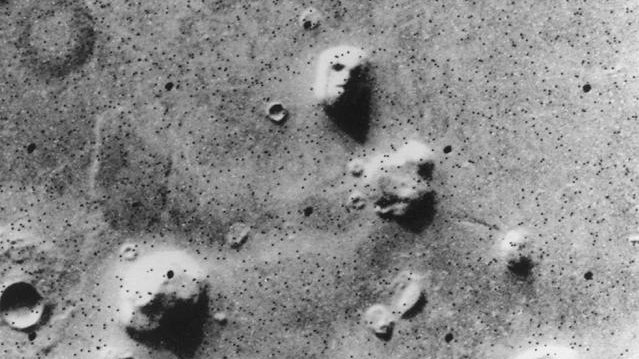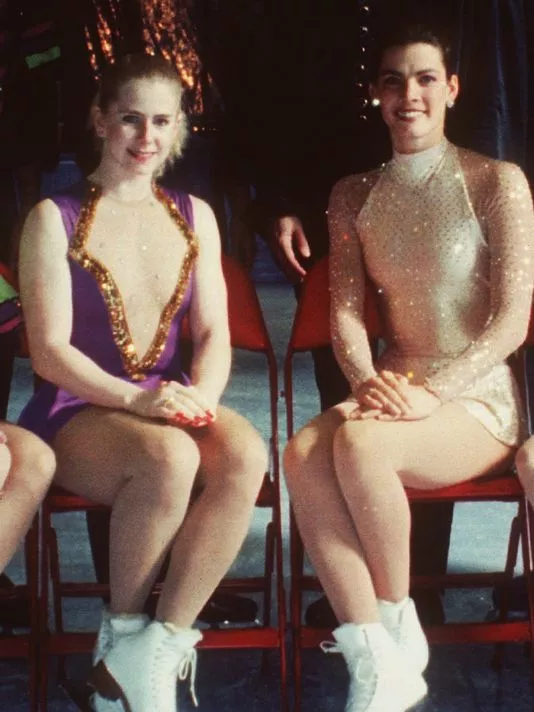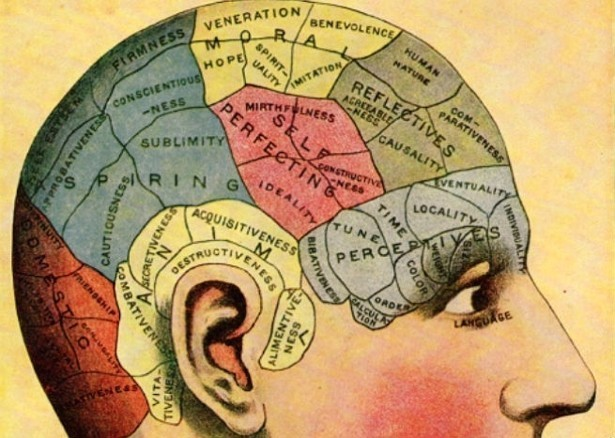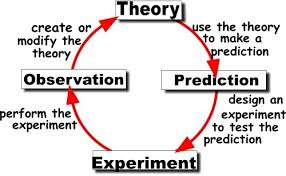Science and Conspiracy
I never believed that vaccines cause autism or that fluoride in the water has a nefarious purpose. But I was raised in a culture that lead me to believe that evolution is a lie used to convert Christians to atheists, and that the idea of anthropogenic climate change is merely a tool to bring about socialism.

I think it’s natural to lump all theories about how science and/or government is misleading us to our doom (chemtrails, evolution, fluoride, flat-earth, vaccines, 9/11, etc.) into one conceptual category. My background of buying into some, but not all of them, makes me believe there’s a spectrum. The fact that I’ve turned my thinking around on these issues gives me some anecdotal experiential data that leads me to think that arguing over “the facts” is not a generally successful strategy for convincing someone who believes that some well-established scientific consensus is bunk.
The problem with deep conspiracy thinking is that there is no possibility for error-correction with facts, because every fact offered can be seen as a lie that is part of the conspiracy. Given this unassailable bulwark against contrary evidence, how can a person who believes in a conspiracy be reached? This is where the spectrum comes in. It seems to me that a person can be rated higher or lower on their susceptibility on a scale of predilection towards conspiratorial thinking. Many personality traits come into play to push this rating higher or lower. Extreme suspicion of authority is one obvious trait. Another one I think is important is a person’s skill at pattern recognition. Most people have experienced absently looking at a wall or floor and seeing images in the random patterns. This process can be applied to our worldview as well, picking out patterns in society, government and such that may or may not exist, but that support our interpretive framework of reality. This process relies heavily on confirmation bias and the availability heuristic. I think it’s a double edged sword, because most of the great innovations and art come from this pattern-making process.

So while I think that conspiracy thinking resides on a continuum, I think that there’s one factor that determines whether a conspiracy believer can ever be reached. And it is this. Do they actually want the truth, or do you want their theory to be true? Is it possible for them to even imagine that their theory is flawed? If so, there’s hope for error correction. It just so happens that there’s a system humans have worked out that does error correction far better than any other system. It’s called science. Science is not a group of people in lab coats or professors in an ivory tower who hand us pre-packaged Truth. Science is method for error correction. If you want Truth, your best bet is to study the method of science, and employ it in your theorycrafting.
To that end, I’ve been collecting arguments from my past, and from current conversations I’ve seen from people who believe in all sorts of conspiracies. These are just random small epiphanies I've had over the years. I’m putting the most common ones here. This is less a list of me telling you how to think, and more a demonstration of the conclusions I’ve come to that compose my current thinking. Feel free to take or leave whatever you like from it.








Ok. So changing my mind abou those 8 things lead me to abandon my previous conspiracy theories. Now here’s a practical application of these principles to what my old self would have latched onto. I… LOVE expanding earth theory.

Here’s a longer one if you want to hear more.
Almost everything about this theory appeals to me on an emotional and aesthetic level. I love the models that have been created for it. I love how it provides a more intuitively satisfying answer for the way the world looks than the tectonic theory provides. I love how it’s been applied to other planets and moons with similarly evocative results.
What’s interesting to me -from a psychological viewpoint- is what’s MISSING in ME, that I used to have which back in the day would have pulled me into a belief in this theory. And that was a kind of in-your-face glee at the thought of all those stuffy arrogant scientists being DEAD WRONG. In Young Earth Creationism, there’s a schadenfreude itch that’s being scratched. It runs deep in the anti-intellectual tradition of evangelicalism. We faithful few had the Deep Truths, and those lost souls who lacked whatever it is that WE had, were trying their best to fool themselves and everyone else into believing their lies. I think this is why the whole End Days, book of Revelation, Armageddon thing is so popular among evangelicals. It’s the ultimate revenge fantasy: The dominant culture may think it’s won, that it’s got everything figured out, and then makes fun of us for daring to believe differently, but just you wait, they’ll get what’s coming to them!
Well, I don’t go in for all that us-versus-them stuff any more. I still think that the field of science is prone to foibles, both on the personal and institutional levels. My background makes me perhaps a bit too skeptical. But what I lost was the paranoia of thinking that there must be a plot at work, or even an unconscious deep seated need that most scientists have to reject Christianity or what-have-you. I do still think that most scientists are attempting to find answers to questions that have historically been answered with religion or philosophy. But that’s just the nature of the mechanics of science. I don’t think it has anything to do with the psychology of the scientific community. But I do think it makes sense to talk about the psychology of the scientific community, diverse as it may be. I think it’s safe to posit the idea that in general, a particular personality profile is drawn to the sciences, and that this profile (or constellation of them) is weighted towards certain proclivities which will naturally channel minds towards certain kinds of conclusions. I think it should be safe to say that without inviting one crowd of people to say “SEE ALL SCIENCE IS OUT TO GET US” and another crowd from saying “OH I SEE, YOU DON’T BELIEVE IN SCIENCE”
I think if there’s one philosophical move I’ve made over the years that has brought me peace and clarity it’s my abandonment of binary thinking that leads me to impulsively put every idea in the True or False conceptual buckets. It’s ok that everything resides on a spectrum, and It’s ok to not know exactly where on the spectrum every idea is. I’m guessing that leaving behind the conspiracies had much more to do with that epistemological shift than it had to do with any hardcore investigations into the specific claims of the conspiracy theories.
So there you have it. That’s where I’m at right now. I enjoy talking about these sorts of things, so feel free to hit me up for convos. Here’s some additional material if the subject interests you.
Updated research on the Backfire Effect. Why belief and attitude are two different things.
Comic about how our emotions influence our acceptance or rejection of ideas.
The problem with deep conspiracy thinking is that there is no possibility for error-correction with facts, because every fact offered can be seen as a lie that is part of the conspiracy. Given this unassailable bulwark against contrary evidence, how can a person who believes in a conspiracy be reached? This is where the spectrum comes in. It seems to me that a person can be rated higher or lower on their susceptibility on a scale of predilection towards conspiratorial thinking. Many personality traits come into play to push this rating higher or lower. Extreme suspicion of authority is one obvious trait. Another one I think is important is a person’s skill at pattern recognition. Most people have experienced absently looking at a wall or floor and seeing images in the random patterns. This process can be applied to our worldview as well, picking out patterns in society, government and such that may or may not exist, but that support our interpretive framework of reality. This process relies heavily on confirmation bias and the availability heuristic. I think it’s a double edged sword, because most of the great innovations and art come from this pattern-making process.
So while I think that conspiracy thinking resides on a continuum, I think that there’s one factor that determines whether a conspiracy believer can ever be reached. And it is this. Do they actually want the truth, or do you want their theory to be true? Is it possible for them to even imagine that their theory is flawed? If so, there’s hope for error correction. It just so happens that there’s a system humans have worked out that does error correction far better than any other system. It’s called science. Science is not a group of people in lab coats or professors in an ivory tower who hand us pre-packaged Truth. Science is method for error correction. If you want Truth, your best bet is to study the method of science, and employ it in your theorycrafting.
To that end, I’ve been collecting arguments from my past, and from current conversations I’ve seen from people who believe in all sorts of conspiracies. These are just random small epiphanies I've had over the years. I’m putting the most common ones here. This is less a list of me telling you how to think, and more a demonstration of the conclusions I’ve come to that compose my current thinking. Feel free to take or leave whatever you like from it.
- You know how people can look at the random distribution of the stars and see shapes like fish and warriors and bears and spoons? That’s cherry picking. Any sufficiently complex field has millions of data points. It’s super easy to cherry pick the ones that support your position. And it’s easy to pick from good science, then arrange the pieces into bad science.
- You can find people with Phds and doctorates to back up literally ANY crazy claim. Want to prove the earth is flat? There’s a Ph.D for that. Want to prove aliens built the pyramids? There’s a Ph.D for that.
- It’s very easy for someone with a medium amount of specialized knowledge to ‘wow’ people with lingo and a scattering of facts, and that is often convincing to folks that this medium amount of knowledge is actually a deep and profound amount. (And who would you go to to figure out how good they are, besides the very colleagues they’ve told you are wrong?)
- Experts are not all the same. Personally, I can’t tell the difference between an intermediate level ice skater, and an olympian level ice skater. They both do amazing things that I can’t imagine myself ever doing. I’m equally impressed by both. Why? Because I’m not trained or educated to perceive the subtleties that actually make a HUGE difference in expertise. Unless you are a highly educated scientist YOU can’t tell the difference either. But with science it’s even MORE pronounced than it is with the ice skater because the dazzling things a scientist advocating for a view does are several more steps removed from what you and I understand about the ice skater.
- Scientific theories do not pop like a balloon if a handful of apparent problems with the theory exist.
- The fact that a theory is used for political reasons says NOTHING about the veracity of the theory.
- The fact that widely accepted scientific claims from the past are no longer accepted does not weaken any current widely accepted scientific claim. The fact current science changes is an important antidote for hubris among the scientific community, but it does not work like a binary lightswitch, automatically making all scientific claims invalid. It is, in fact, a STRENGTH of science that the process is open to limitless input.
- For your alternative science idea (hypothesis) to compete with accepted science ideas, it needs to be a theory. The word ‘theory’ in the science context is not a synonym for hunch, idea, or thought experiment. It requires the ability to be repeated and falsified. It also needs to make predictive claims. The stronger those claims, and more they are shown to come true, the stronger your theory. If your conspiracy theory can not be falsified and cannot make predictions you should not expect it to compete with scientific theories.
Here’s a brief video that will get you the jist of it. https://www.youtube.com/watch?v=oJfBSc6e7QQ
What’s interesting to me -from a psychological viewpoint- is what’s MISSING in ME, that I used to have which back in the day would have pulled me into a belief in this theory. And that was a kind of in-your-face glee at the thought of all those stuffy arrogant scientists being DEAD WRONG. In Young Earth Creationism, there’s a schadenfreude itch that’s being scratched. It runs deep in the anti-intellectual tradition of evangelicalism. We faithful few had the Deep Truths, and those lost souls who lacked whatever it is that WE had, were trying their best to fool themselves and everyone else into believing their lies. I think this is why the whole End Days, book of Revelation, Armageddon thing is so popular among evangelicals. It’s the ultimate revenge fantasy: The dominant culture may think it’s won, that it’s got everything figured out, and then makes fun of us for daring to believe differently, but just you wait, they’ll get what’s coming to them!
Well, I don’t go in for all that us-versus-them stuff any more. I still think that the field of science is prone to foibles, both on the personal and institutional levels. My background makes me perhaps a bit too skeptical. But what I lost was the paranoia of thinking that there must be a plot at work, or even an unconscious deep seated need that most scientists have to reject Christianity or what-have-you. I do still think that most scientists are attempting to find answers to questions that have historically been answered with religion or philosophy. But that’s just the nature of the mechanics of science. I don’t think it has anything to do with the psychology of the scientific community. But I do think it makes sense to talk about the psychology of the scientific community, diverse as it may be. I think it’s safe to posit the idea that in general, a particular personality profile is drawn to the sciences, and that this profile (or constellation of them) is weighted towards certain proclivities which will naturally channel minds towards certain kinds of conclusions. I think it should be safe to say that without inviting one crowd of people to say “SEE ALL SCIENCE IS OUT TO GET US” and another crowd from saying “OH I SEE, YOU DON’T BELIEVE IN SCIENCE”
I think if there’s one philosophical move I’ve made over the years that has brought me peace and clarity it’s my abandonment of binary thinking that leads me to impulsively put every idea in the True or False conceptual buckets. It’s ok that everything resides on a spectrum, and It’s ok to not know exactly where on the spectrum every idea is. I’m guessing that leaving behind the conspiracies had much more to do with that epistemological shift than it had to do with any hardcore investigations into the specific claims of the conspiracy theories.
So there you have it. That’s where I’m at right now. I enjoy talking about these sorts of things, so feel free to hit me up for convos. Here’s some additional material if the subject interests you.
Updated research on the Backfire Effect. Why belief and attitude are two different things.

Comments
https://123gamesfree.com/tag/bgames/
https://123gamesfree.com/action/
https://123gamesfree.com/card-board/
https://123gamesfree.com